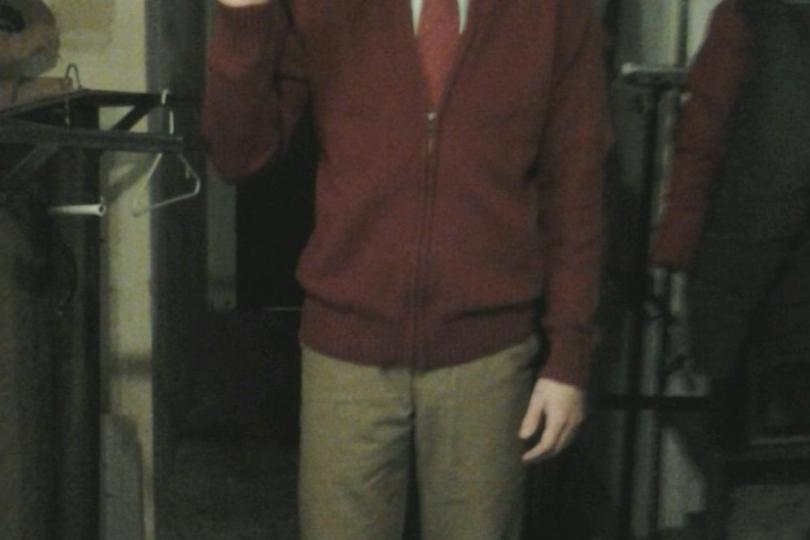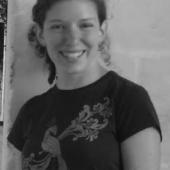Transforming the mundane into the amazing

It isn’t news that there are a lot of decisions that go into staging a piece of theater. Critics love to pick all these decisions apart; discussions of the nuances of acting, design, or the show’s pace make a review more vivid – or, for the cynical, provide padding to hit a word count. But before getting down to minutia, there are two big decisions that both critics and audiences might not always spend enough time considering: first, why the playwright decided to write the play (why the text exists in the first place), and second, why the director decided to stage it (why and how a text is deemed to be “art”).
These are heady questions, and there are more than a few different ways to go about answering them. The Uncreativity Festival, Billy Mullaney’s two-night-only brainchild last weekend at the Bryant-Lake Bowl, tackled the issue of how text becomes art by sidestepping it entirely. The Festival’s ten different short pieces rearranged or re-curated material from a variety of sources, many of which weren’t meant to be staged at all, to explore what it means to view a mundane text as an aesthetic work.
For example, the show opened with a reading of phrases from word problems from a high school geometry textbook - something that should be painfully boring, but got funnier as themes started to emerge. You have no idea how many people - male and female, of all different ethnic backgrounds! - want to measure their athletic field, build a bike ramp, or explore the wide world of interior decorating.
There were other moments that were astounding examples of technical prowess: Billy Mullaney can not only do a killer Mr. Rogers impersonation, but he has also memorized an MIT lecture on quantum field theory, which he performs while also writing out all relevant formulae on a whiteboard. I wondered: is it more awe-inspiring to understand quantum physics, or to be able to recite it at great length, with (presumably) a very limited background in the field?
Other pieces were constructed with specific political agendas in mind. “Brokeback Mountain Without the Gays” (by Max Wirsing) was an edit of the film that excluded all shots of the main characters. It turns out that when you erase homosexuality from “Brokeback Mountain”, what you get is an empty narrative that alternates between a starkly heterosexual community and some really beautiful landscapes inhabited only by sheep - an interesting meditation on what types of voices get silenced, and what is left when diversity is literally wiped off the screen.
The funniest piece of the evening was “Verbatim/What is a Photocopier?," by Brett Weiner of the NY Times. A dramatization of a transcript from a real-life court case, it may as well have been a piece of absurdist theater. In fact, it hit the notes of absurdist theater better than some absurdist plays I’ve seen.
That brings me back to my main point about how playwrights and directors determine what gets put on stage. Although some of the pieces in the Uncreativity Festival were harder to decipher and enjoy than others, all of these non-theatrical texts were put on stage for specific reasons. Sometimes, as in the recent case of Brown professor Kenneth Goldsmith reading Michael Brown’s autopsy report as poetry, the reasons for staging a work – and the power dynamics at play when appropriating others’ texts – are not as fully thought through as they ought to be. Regardless, the notion of “uncreativity” crystallizes important ethical and artistic questions about what we are staging, why, and by whom.
And it’s worth remembering that some of these abstracted, recontextualized texts reflect choices that are being made by playwrights and artistic directors on a regular basis. Erin Pike’s performance in “That’swhatshesaid”, which was built using lines spoken by TCG’s 10 “most-produced plays” of 2013-14, is a perfect example of the additive effect of many of these individual choices. Write one temperamental female character into a play: fine. Take that play over ten iterations, and you get a clear picture what womanhood looks like, at least according to this selection of theater: insecure, volatile, and possibly alcoholic. Similarly, removing the gays from “Brokeback Mountain” highlights, on a smaller scale, a feeling of under-representation and erasure that members of the GLBT communities (and other marginalized groups) have experienced for decades.
It’s a shame that the Uncreativity Festival only lasted for a weekend, because I would’ve loved to recommend it to anyone involved in theater creation or selection. So I’ll leave you with a bit of the spirit of the festival, at least for those interested in theater criticism. Here is my own bit of Uncreativity, a selection of first, middle, and last lines from six of the most recent Twin Cities theater reviews I could find (including Matthew Everett’s review of the Uncreativity Festival itself). You can decide: is appropriating texts a silly intellectual exercise? Or does it make you read the world a little differently?
Timeless, warm and winning, light and cheeky, engaging theater
Stop what you’re doing right now and get all expectations of cliches out of your system. For most of us, that baggage rotates more or less harmlessly on the luggage carousel in our heads. It is a shameless piffle and in fact, that snark is intended to be part of the fun. What's not to love about the orphan girl in rural early 20th Century Canada with a flair for the melodramatic and a fierce determination to enjoy life and make the most of it? The friend who came with me was genuinely disappointed there wasn’t going to be a intermission and then still more of it (I’m not kidding, there was actually an elongated “Awwww” involved). Do subjects get seriouser?
Vibrant and full of energy and optimism, this production feels surprisingly fresh. His plotting, however, is less sure-footed than in some of his other work. Actors step out for asides to the audience, or the satire fills the sensibility of the action. She pretty much carries the show on her young shoulders and does so admirably. That kind of unflinching sincerity and attention has real power in it. In my opinion… Never mind my opinion.
Beautifully designed and wonderfully performed, one would do well not to miss this production of a decades-old classic. Working together, they create an effective, attractive and wholly human sense of chemistry that offers a clear portrait of what brought this pair together. He understands balance and pace and gives his actors room to play. This is a heartwarming, funny, endearing story of the joys and traumas, both small and large, of growing up. It’s the kind of theater that engages you, rather than just filling your time. Where else would you get to see the crème of the cream perform an enjoyable play like this one?
Sources:
http://www.tcdailyplanet.net/arts/2015/04/01/theater-review-annie-orpheum-theatre-minneapolis
http://www.twincities.com/stage/ci_27848430/shooting-star-review-warm-and-winning-romantic-comedy
http://www.startribune.com/entertainment/stageandarts/298598551.html
http://www.cherryandspoon.com/2015/03/anne-of-green-gables-at-theatre-in-round.html
http://www.tcdailyplanet.net/arts/2015/04/04/theater-review-uncreativity-festival-billy-mullaney
http://www.howwastheshow.com/2015/03/death-tax-at-pillsbury-house-theatre/




